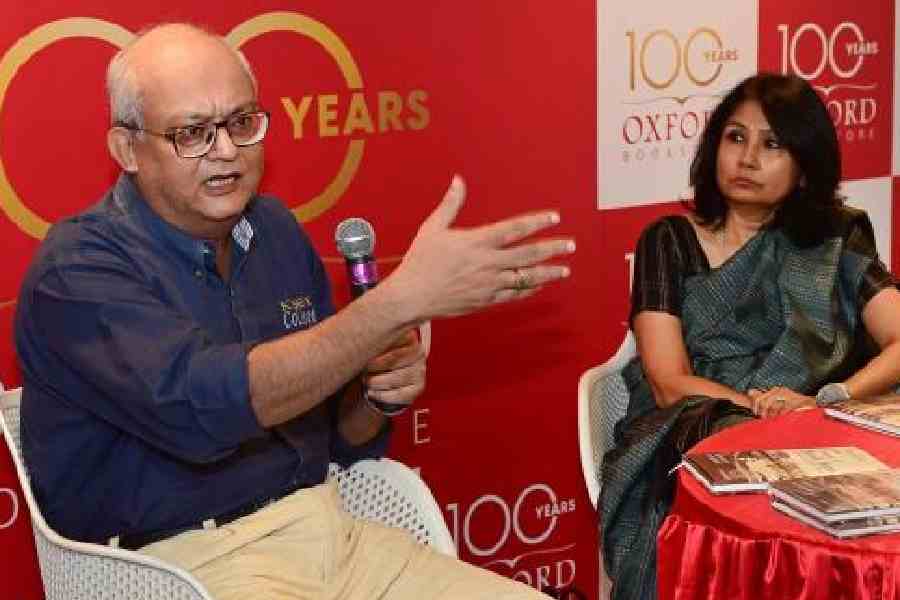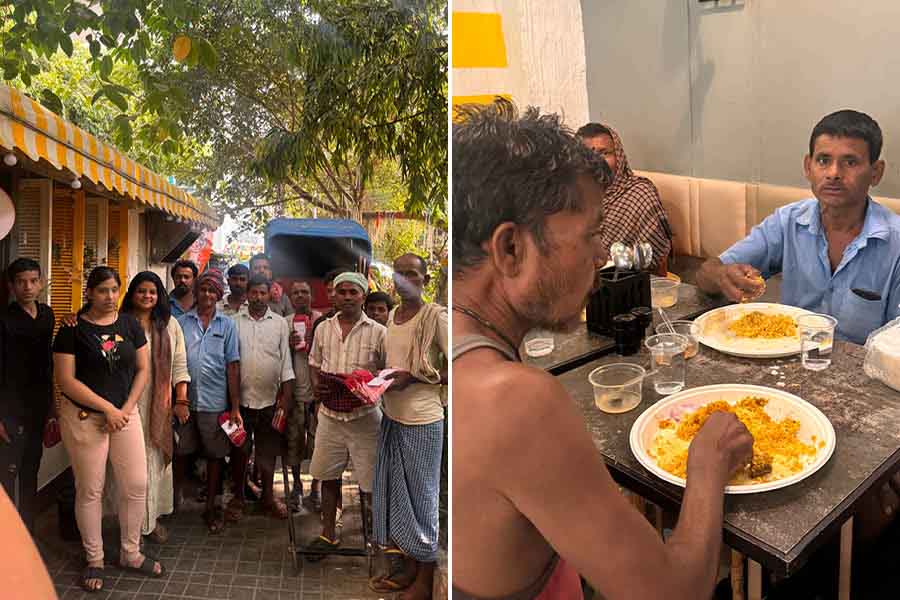The Life and Times of David Hare: First Secular Educationist of India, launched by novelist Amit Chaudhuri at Oxford Bookstore, gives an insight into the life of David Hare, a Scottish gentleman who came to India in the early 19th century and he went on to revolutionise the country’s societal fabric. Written by Sarojesh Mukerjee, who was in conversation with Rosinka Chaudhuri, he expressed his larger debt of gratitude for Rosinka who helped him with his debut book. Rosinka also praised Sarojesh and turned the formal launch into an adda that discussed Hare as an educator and visionary with his heart in the right place.
Attention was drawn to the subtitle of the book — ‘secular’ and ‘educationist’ — after the formal launch. Mukerjee who has written about many ‘firsts’ of Hare in the book said: “I had no idea when I began writing the book that there was a strong element of secularism. In the early 19th century secularism was referred to as keeping the Christian missionary influence out as that was the prevailing force on education. The first organised school in Bengal was opened by missionaries who were primarily missionaries and then educationists. David Hare at that point in time took that initiative and followed it up by keeping the Christian missionary’s influence entirely out and by reconciling different shades of Hindu opinion and keeping religion out of the classroom.”
The book elaborates on Hare’s unwavering belief in the transformative power of education, his compassion for the underprivileged, and his unwavering commitment to bridging the gap between communities through learning. Anecdotes of Hare’s struggles against social and political resistance, his role in the development of iconic institutions like Hindoo College (Presidency College) and Calcutta Medical College, and his dedication to making education accessible to all, regardless of background, added an air of positivity to the evening.
The discussion also explored how the British were not interested in promoting English education in India and how the population later opened up to English education. “The British did not want to interfere with Indian education, which was primarily Sanskrit and Persian. They were, in fact, into conciliation with Hindu and Muslim elites. They were merchants and profit was always above governance,” said Mukerjee who acquired his interest in a multidisciplinary approach to history as part of a liberal arts education at Knox College in the US. The narrative later moved towards how enhanced income opportunities attracted both reformists and conservatives towards English education.
“Hare is one of the premier educators of the city and the 19th century but he was not a classroom teacher. At a time he was running six schools. He was instrumental in setting up Hindoo College. Without him the Medical College wouldn’t have survived,” said Mukerjee, who is the founder of The Cambridge School, Calcutta, where he teaches economics and occasionally history. He stressed on how Hare’s story serves as a beacon of hope, reminding us of the power of individual conviction and the transformative potential of education.






